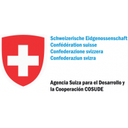Executive Secretary

10th International Scientific Conference on Agricultural Development and SustainabilityAGROCENTRO 2023
Agrocentro 2021
Abstract
Yam tubers (Dioscorea spp.) are an excellent source of carbohydrates and contain vitamins such as thiamine, riboflavin, niacin, ascorbic acid, and carotenes. In addition, they have a large part of the essential amino acids and minerals necessary in the human diet (USDA NAL, 2017). The municipality of Camajuaní is the one with the largest planted area in the central region (it exceeds 170 ha per year) and is among the top three in the country (MINAG, 2012). Among the major limitations faced by the production of Dioscorea spp. Globally, there are the effects caused by viral diseases that affect the producing areas (Odu et al., 2011) where potyviruses have the greatest economic impact (Eni et al., 2010a; Nkere et al., 2018) . This research reports for the first time the presence in Cuba of the species Yam mosaic virus (YMV) and Yam mild mosaic virus (YMMV) belonging to the genus Potyvirus, family Potyviridae, with an incidence of these diseases that was higher than 64% in areas of production of the Camajuani municipality. The existence of resistant, tolerant and susceptible cultivars to these diseases was determined. 10 species of weeds associated with the cultivation of Dioscorea spp. as alternative hosts for potyvirus. In addition, in this cultivar it was possible to obtain propagation material free of potyvirus by harvesting the tubers with the green foliage and their longitudinal fractionation. This moment of harvest of the bulbilos in the cultivar 'Belep' (D. alata) allowed to obtain more than 50% of seedlings free of potyvirus. With the use of these planting materials of both tolerant cultivars, protected from infection in the field by a plant barrier of the cultivar 'Burro CEMSA' (Musa ABB), it was possible to reduce losses caused by diseases associated with potyvirus among 50-57%. The results obtained allow to contribute to the management of diseases associated with potyvirus in commercial cultivars of Dioscorea spp. in Cuba.
Resumen
El algodón (Gossypium barbadense L.) tiene un alto valor económico y un alto potencial de explotación industrial. El objetivo de esta investigación fue estudiar diferentes concentraciones de ácido 2,4-diclorofenoxiacético (2,4-D) ácido ascórbico en la formación de callos embriogénicos del cultivo de algodón 'MSI', a partir de segmentos de hojas de plantas que crecieron en semicontrolados condiciones. La investigación se realizó en la Biofábrica adscrita al Ministerio de Agricultura en la provincia de Villa Clara, durante el período comprendido entre mayo de 2020 y febrero de 2021. Se estudiaron diferentes concentraciones de 2,4-D (2,26; 4,52; 6,76; 9,05; 11,31 y 13,57 µM) para la formación de callos y de ácido ascórbico (30, 60 y 90 mg l-1) para reducir la oxidación de los compuestos fenólicos producido por los explantes. Se evaluaron los porcentajes formación de callos totales y callos tipo I, así como el grado de oxidación de los compuestos fenólicos mediante una escala diseñada con este objetivo. Con la adición de 11,31 µM de 2,4-D se logró un 60 % de formación de callos totales y un 50 % de callos Tipo I. Sin embargo, se produjo una oxidación de los compuestos fenólicos que se eliminó totalmente con la adición de 60 mg l-1 de ácido ascórbico al medio de cultivo. Con la adición al medio de cultivo de 11,31 µM 2,4-D y 60 mg l-1 del antioxidante se incrementaron los porcentajes de callos totales y callos embriogénicos (Tipo I) hasta 90,33 y 88,05% respectivamente.
About The Speaker

M. Sc. Luke Leroy Theodore Nedd


